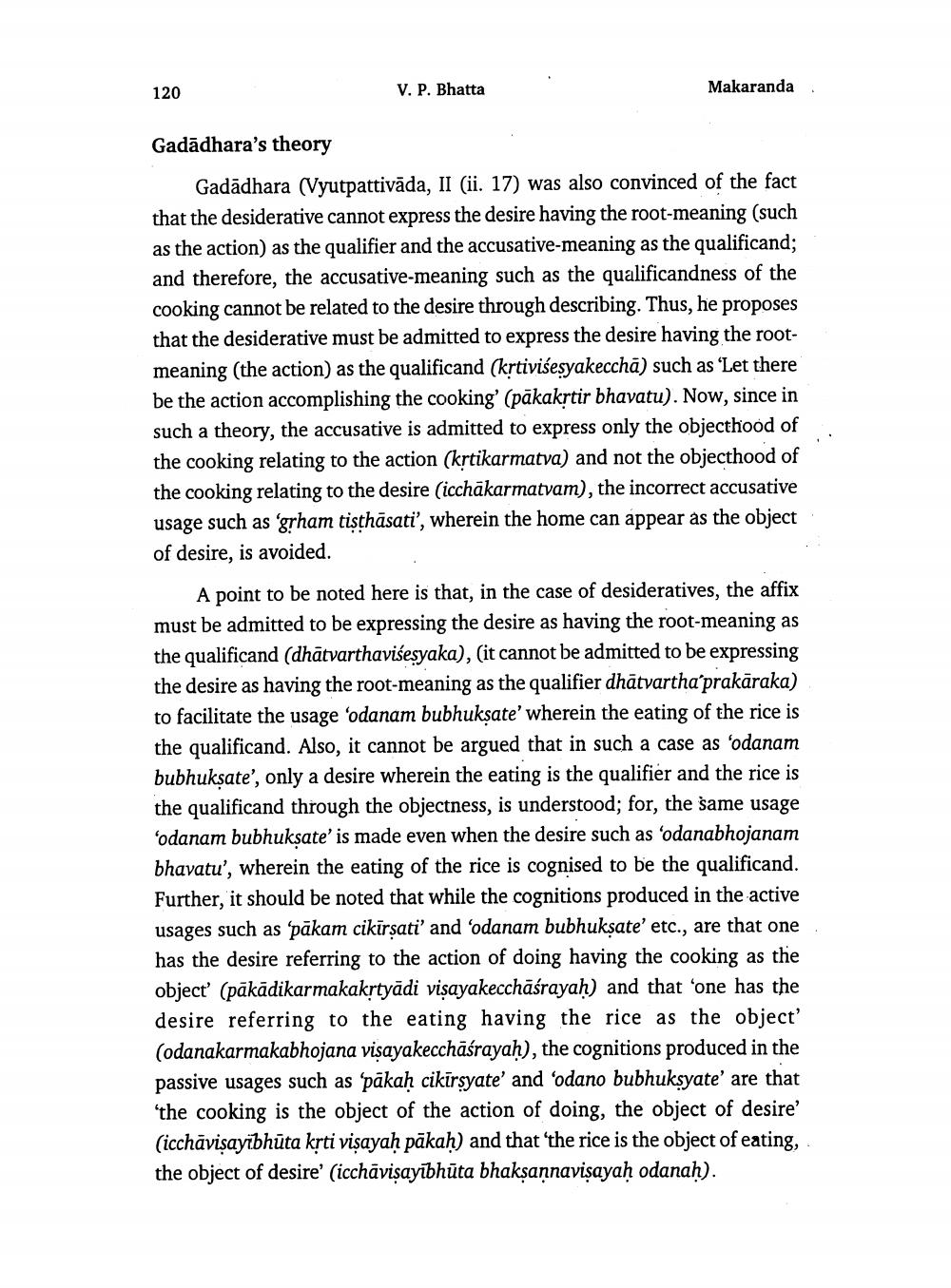________________
120
V. P. Bhatta
Makaranda
Gadādhara's theory
Gadādhara (Vyutpattivāda, II (ii. 17) was also convinced of the fact that the desiderative cannot express the desire having the root-meaning (such as the action) as the qualifier and the accusative-meaning as the qualificand; and therefore, the accusative-meaning such as the qualificandness of the cooking cannot be related to the desire through describing. Thus, he proposes that the desiderative must be admitted to express the desire having the rootmeaning (the action) as the qualificand (krtivisesyakecchā) such as 'Let there be the action accomplishing the cooking' (pākakrtir bhavatu). Now, since in such a theory, the accusative is admitted to express only the objecthood of the cooking relating to the action (krtikarmatva) and not the objecthood of the cooking relating to the desire (icchakarmatvam), the incorrect accusative usage such as grham tisthāsati', wherein the home can appear as the object of desire, is avoided.
A point to be noted here is that, in the case of desideratives, the affix must be admitted to be expressing the desire as having the root-meaning as the qualificand (dhātvarthavišesyaka), (it cannot be admitted to be expressing the desire as having the root-meaning as the qualifier dhātvartha’prakāraka) to facilitate the usage 'odanam bubhuksate' wherein the eating of the rice is the qualificand. Also, it cannot be argued that in such a case as ‘odanam bubhuksate', only a desire wherein the eating is the qualifier and the rice is the qualificand through the objectness, is understood; for, the same usage ‘odanam bubhuksate' is made even when the desire such as 'odanabhojanam bhavatu', wherein the eating of the rice is cognised to be the qualificand. Further, it should be noted that while the cognitions produced in the active usages such as pākam cikīrsati' and 'odanam bubhuksate' etc., are that one has the desire referring to the action of doing having the cooking as the object (pākādikarmakakrtyādi vişayakecchāśrayah) and that one has the desire referring to the eating having the rice as the object' (odanakarmakabhojana visayakecchāśrayah), the cognitions produced in the passive usages such as ‘pākaḥ cikīrsyate' and 'odano bubhuksyate' are that 'the cooking is the object of the action of doing, the object of desire' (icchāvişayibhūta krti visayaḥ pākah) and that the rice is the object of eating, the object of desire' (icchāvisayībhūta bhakşannavisayaḥ odanah).




